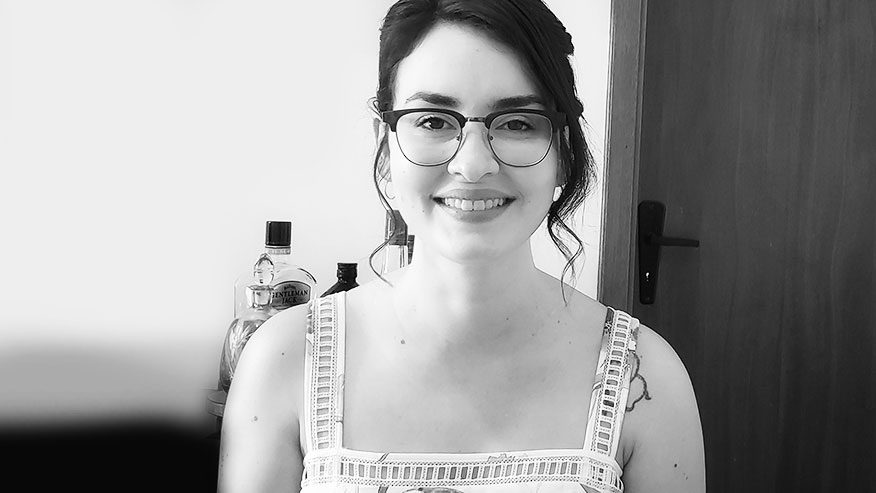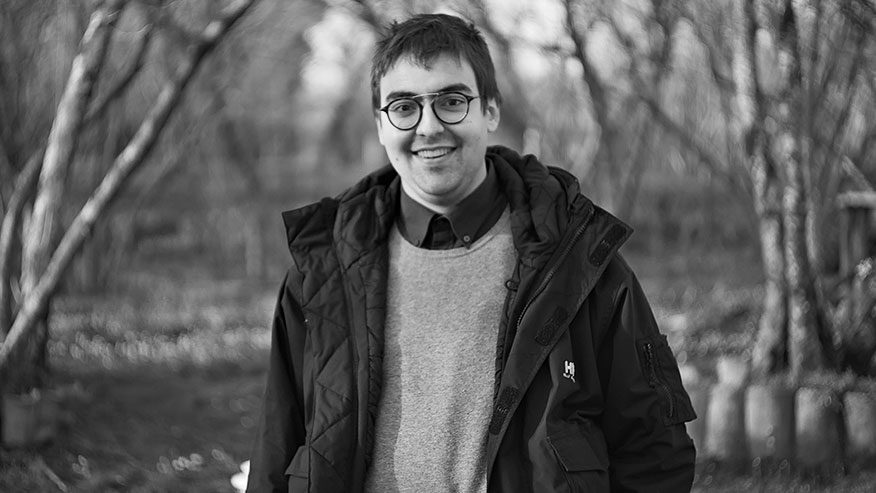
Michele Butini
Universidad de Sevilla
- ESR 2 The Carmina Latina Epigraphica of Carthage. Edition, Translation, and Commentary
- Background:BA and MA in Classics (Rome)
I studied for five years at Sapienza University of Rome, the city where I also was born and which I love. I have deeply fallen in love with epigraphy during the third year of my studies and I obtained my bachelor’s degree discussing an historical and prosopographical dissertation about the collegium of the Quindecemviri sacris faciundis in the 4th century A.D. Then, I got my master’s degree in Classical Philology working on a thesis about Latin and Greek inscriptions on silverware in Late Antiquity and the Early Medieval period in Europe, focusing in particular on the metric ones, trying to compare those few examples of expression with some evidences transmitted by manuscript sources. Now I had the honour of winning one of the ESR positions in the context of the Carmen ITN. This commitment will give me the opportunity to live for at least three years in the marvellous city of Seville. This experience will definitely be the occasion that I was looking for to improve my preparation and jointly put my skills into practice, to challenge myself forcing me out of my comfort zone. I see an adventure ahead and I hope for the best.

Timo Eichhorn
Sapienza Università di Roma
- ESR 1The Carmina Latina Epigraphica on Funerary Monuments of Rome
- Background:BA and MA in Latin Philology and Archaeology of the Roman Provinces (Cologne)
My name is Timo Eichhorn and I graduated in Latin Philology and Archaeology of the Roman Provinces from the University of Cologne, Germany. From 2017–2021, I was a research assistant both to Prof. Jan-Felix Gaertner of the Department of Classics and to Prof. Werner Eck at the Corpus Inscriptionum Iudaeae Palaestinae (CIIP). Working on a verse inscription from ancient Cologne I became fascinated by the topic of the Carmina Latina Epigraphica because they represent a splendid example of the intersection of so many fields of research in antiquity studies. Therefore, I consider it an exceptional privilege to be given the opportunity to deal with the non-Christian funerary verse inscriptions of Rome (ESR 1) as they are not only numerous but also offer diverse contents from all social strata.
Publications:
- G. L. Gregori / T. Eichhorn, Parlare in versi: Carmina Latina Epigraphica ed esempi di prosa elevata nelle iscrizioni di soldati da Roma e dall’Italia. Paper delivered at “La parole est aux militaires. Commander, dialoguer, désobéir dans l’armée romaine”. 8e congrès international sur l’armée romaine (20–22 octobre 2022), in press.
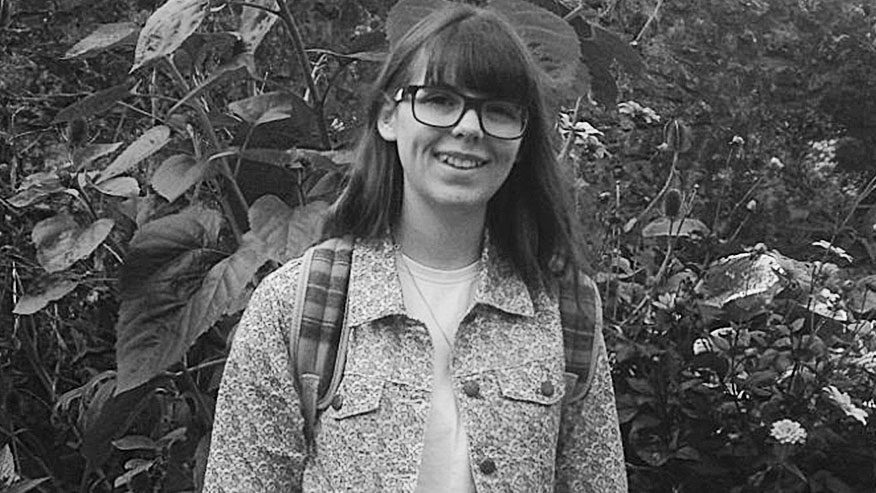
Penelope Faithfull
Universität Wien
- ESR 6War and Peace. Military Lives and Identities in Latin Verse Inscriptions
- Background:BA in Classics (Reading)MA in Medieval Studies (Exeter)
I graduated from the University of Exeter with an MA in Medieval Studies in 2020, having completed my undergraduate studies in Classics at the University of Reading in 2019. My main areas of interest include: Latin philology, Latin verse, the Roman military (particularly the imperial army), the development and evolution of Latin, Latin abbreviations, Medieval Latin and Medieval South West England.
Publications:
Presentations
- ‘A Layout by Any Other Name Would Sound as Sweet…?’ The Importance of Layout and Format in Roman Military Verse Inscriptions, at the conference at the University of Hamburg, Cluster of Excellence: Understanding Written Artefacts ‘Studying Written Artefacts: Challenges and Perspectives’ (September 2023)
- War and Peace. Military Lives and Identities in Latin Verse Inscriptions, at the CARMEN Workshop at the University of Sapienza ‘Latin Sociolinguistics: Methodology, Problems, Questions, Research Trends’ (September 2022)

Gabriël de Klerk
Universität Mainz
- ESR 5Mapping Gender in Funerary Contexts
- Background:BA and MA in Ancient History (Leiden)MA in Theology and Religious Studies (Leiden)
My name is Gabriël de Klerk and I will function as a PhD-student for the ESR 5: ‘Mapping Gender in Funerary Contexts’, which will be conducted at the Johannes Gutenberg-Universität of Mainz. I have obtained a master’s degree in Ancient History at Leiden University in 2020 and a master’s degree in Theology and Religious Studies in 2021 (also at Leiden). My main interests are the construction of cultural and social identity on epigraphic evidence and the propagation of imperial power and ideology through numismatic sources. I have written my first master’s thesis on the Roman imperial cult in Julio-Claudian Greece and my second master’s thesis on Jewish civic identity in Roman Imperial Asia Minor.
Publications:
- “Displays of Power: Imperial Ideology on the Coinage of Galba during the Crisis of 68/69 A.D.,” Leiden Elective Academic Periodical 1:1 (2021), 85-106.
Presentations
- “ESR 5: Mapping Masculinity in the Funerary Sphere,” Workshop Objects of the Past: Presentation and Museology (Sevilla, 2021).
- “The Representation of Mourning on Versified Inscriptions,” Workshop Latin Sociolinguistics (Rome, 2022).
- “The (Un)gendered Representation of Masculine Emotion on Poetic Latin Epitaphs,” Colloque “Masculin et féminin en poésie latine” (Saint-Étienne, jeudi 19 octobre / Lyon, vendredi 20 octobre 2023) (Lyon, 2023).
Lectures
- Guest lecture “Jewish Participation in Civic Life. A Case Study of the Jewish Epitaphs of Hierapolis, Asia Minor,” Lecture Series Jews, Christians and Pagans in Roman Asia Minor (Jürgen Zangenberg, Leiden University 2021/2022), 6.03.2022.
Originally from Ribeirão Preto, Brazil. I obtained my master’s degree in Literary Studies at São Paulo State University (UNESP), with the project entitled “Dialogue with the dead: poetic translation of Latin funerary epigrams”. I worked with a corpus consisting of funerary epigrams from the Carmina Latina Epigraphica, by F. Buecheler, A. Riese and E. Lommatzsch. I analysed and poetically translated to Portuguese those epigrams in which the famous Latin expression sit tibi terra leuis could be found.
Publications:
- Almeida, L. N.; Lemes, A. Entre o mito e a poesia: uma leitura em Orides Fontela (Between myth and poetry: an intertextual reading in Orides Fontela). Letras Escreve. v.11, p. 77- 89, 2022. Brazil/Portuguese (Abstract in English) Link
- Lemes, A. Um Urso no banquete de Trimalquião: tradução e análise do CLE 29 (An Urso at the Banquet of Trimalchio: translation and analysis of CLE 29). Translatio, v.1, p.140-153, 2021. Brazil/Portuguese (Abstract in English) Link
- Lemes, A. As graças de Eucaris: análise e tradução poética do epigrama CLE 55 (The graces of Eucharis: analysis and poetical translations of epigram CLE 55.). CODEX: Revista Discente de Estudos Clássicos, v.8, p. 26-38, 2020. Brazil/Portuguese (Abstract in English) Link
Presentations
- Lemes, A; Sarli, L. Applying pedagogical activities on Epigraphy and Archaeology at Science is Wonderful, a fair organised by EU-Commission and MSCA, Synergia (Universität Trier), 2023.
- Lemes, A. Formulaic speech in metrical latin funerary epigrams, Mittelrheinishes Symposion; Universität Trier, 2023.
- Lemes, A. Online and inscribed grieving: differences and similarities in funeral speeches, Social Media in Ancient World – the particular case of Carmina Latina Epigraphica, Université de Bourgogne, Dijon, 2023.
- Lemes, A.; Sarli, L. Write like the Ancient Romans. Science is Wonderful, Brussels, 2023.
Awards
- Educational project in epigraphy and archaeology, aimed at students aged 5 to 18, created by A. Lemes and L. Sarli, entitled “Write like the Ancient Romans”, approved in the call for the science fair Science is Wonderful, funded by the European Commission and MSCA, 2023.
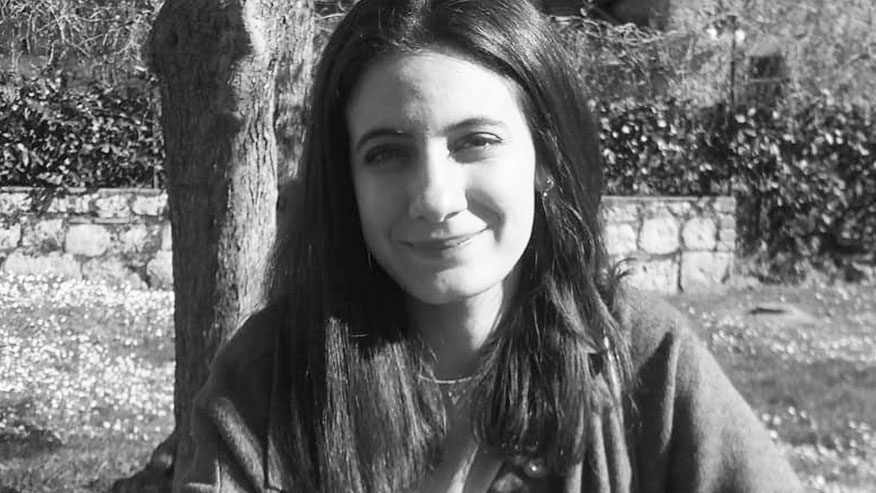
Eleonora Maiello
Universität Mainz
- ESR 8Poetry in the name of God
- Background: BA and MA in Classical and Ancient Near Eastern Studies (Pavia)MA in Classics and Ancient History (Exeter)
Originally from Piacenza, a quiet and small town in the North of Italy, I discovered my passion for Classics in my high school years. I completed my BA and a MA at the University of Pavia and moved on after that to study in the UK, where I obtained a second MA at the University of Exeter. My passion for Classics brings me to the University of Mainz for a PhD within the CARMEN project.
I am very interested in the ancient world and especially in Late Antiquity and its rich cultural production and religious landscape.
Publications:
Presentations
- ‘The language of the hereafter in the ecclesiastical metrical inscriptions and in lay prose inscriptions of 4th and 5th century Italy’ at the CARMEN Workshop Latin Sociolinguistics: Methodology, Problems, Questions, Research Trends (September 16–17, 2022, Rome)
- ‘Honouring the martyr, celebrating God: power, identity and religion in Constantina’s dedicatory inscription for the martyr Agnes’ at the Reunión Internacional La Poesía Epigráfica: Retos y Nuevas Perspectivas en su Estudio (November 23-25, 2022, Madrid)
- ‘Soul searching teachers: 4th and 5th century bishops as spiritual guides in the carmina Latina epigraphica of Italy’ within the Karpeia talks (July 3, 2023, Mainz)

Giovanni Naccarato
Université Bourgogne Franche-Comté
- ESR 4Staging Death: Making a Difference
- Background:BA and MA in Classics (Rome)
I graduated in Latin epigraphy at the University “La Sapienza” (Rome) with a thesis on the resistance and resilience of pagan cults in Rome during the 4th century. I have since developed a strong passion for the Carmina Latina Epigraphica. The opportunity to delve into its complex facets came with the paper I wrote for the scholarship “Course of Excellence” on two metrical inscriptions from Carthage. Thanks to my studies and research as well as my work as an epigraphist for the Epigraphic Database Roma, I have also become familiar with the digital tools of epigraphy.
Now, excited to have been chosen as ESR 4, whose intriguing title is “Staging Death: Making a Difference”, I will spend the next three years (2021-2024) trying to use the inexhaustible fund of material documents of the North African provinces to reconstruct the archaeological and epigraphic landscapes.
Publications:
- La preghiera di Cascelia Elegans nel Mitreo dei Castra Peregrina. Una nuova proposta. «Epigraphica» 85, 2023, pp. 309–324.
Presentations
- Pietas e autorappresentazione in Nord-Africa, le iscrizioni funerarie di età Giulio-Claudia. «L’africa Romana» 22, from December 15–19, 2022, Sbeitla, Tunisia. (to be published)
- Entre histoire et littérature: trois carmina funéraires de Théveste. «AOURAS», Nanterre, Paris, France, from October 20–21, 2022. (to be published)
- The Mausoleum of the Flavii at Cillium. New Perspectives. «The Social Media in Ancient World», from April 3–5, 2023, Dijon, France. (to be published)
- Presentation of the project CARMEN. With M. Butini, T. Eichhorn, C. Rochlitzer in the panel Carmina Latina Epigraphica at the XVIe Congrès international d’épigraphie grecque et latine, from September 29–2, Bordeaux, France.
- L’iscrizione votiva di Cascelia Elegans. «The 18th Annual Conference of the European Association for the Study of Religions (EASR), from August 30–September 3, 2021.

Eleni Oikonomou
Universidad del País Vasco
- ESR 7Christian Latin Verse Inscriptions. Rhetorical Analysis of the Picture of Children
- Background:BA in Classics (Thessaloniki)MA in Latin Philology (Thessaloniki)
My name is Eleni Oikonomou and I acquired my BA in Classics from the Aristotle University of Thessaloniki, Greece. I continued my studies at the same institution, obtaining a MA in Latin Philology. My thesis, titled “A feminist reading of Vergil’s Dido”, gave me the chance to delve into issues regarding gender and feminist literary criticism, in particular. During my studies and for about four years, I have been teaching Latin, Ancient Greek and Modern Greek. Recently, I was given the opportunity, in the context of the CARMEN ITN project, to investigate the intriguing research domain of the commemoration of children in Christian Latin verse inscriptions at Universidad del País Vasco. Undoubtedly, I consider the next three years as a challenging as well as an exciting milestone in my academic journey.
Publications:
Presentations
- “Expressing Affection Towards Children in Christian Latin Verse Inscriptions”, CARMEN Workshop “Latin Sociolinguistics” (Rome, 16–17 September 2022)
- “The Funerary Inscription for Severa dulcis (CLE 656): Commemorating Children under the Influence of Christianity”, International Meeting “Epigraphic poetry: Challenges and New Perspectives in its Study” (Madrid, 23–25 November 2022) (Publication pending)
- “Early Christian Funerary Inscriptions: Means of Constructing a Religious Identity (?)”, CARMEN Seminar & Conference 3: “Social Media in the Ancient World” (Dijon, 3-6 April 2023) (Publication pending)
Co-organization of the congress and presentation
- “Algunos aspectos psicológicos del lamento en los CLE dedicados a los niños”, I. Congreso Internacional de Jóvenes Investigadores en Literatura (JILEHU): “Continuidades, intersecciones y desvíos: nuevas perspectivas en la investigación literaria” (Vitoria-Gasteiz, 20-22 September 2023) (Publication pending)
Lectures
- “La Dido de Virgilio: una relectura de la reina-refudiada”, Cursos Formativos de Departamento de Estudios Clasicos UPV-EHU en ACAEXA 2023/24: “Viajes y viajeros de la Antigüedad” (Escuela de Magisterio, Vitoria-Gasteiz, 22 January 2024)
Posters
- “Christian Latin Verse Inscriptions: Endearment Towards Children”, XVI International Congress of Greek and Latin Epigraphy (CIEGL 2022) (Bordeaux, 29 August – 2 September 2022)
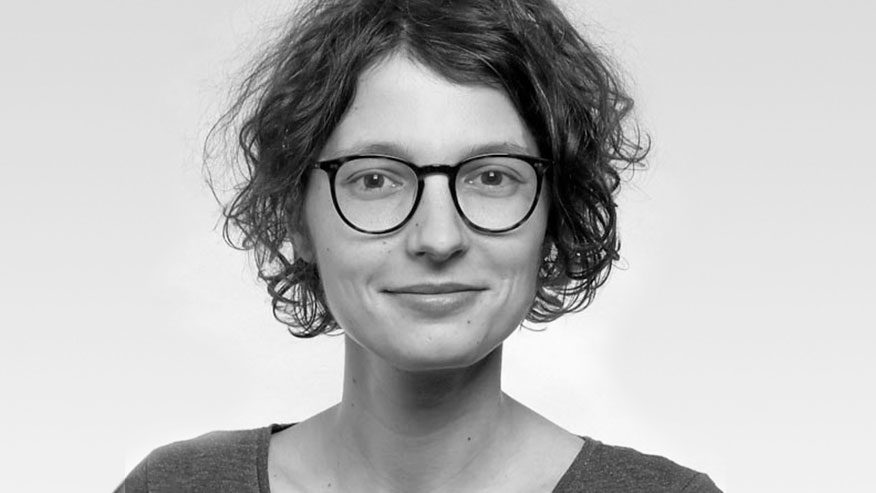
Christin Rochlitzer
Sapienza Università di Roma
- ESR 10The Carmina Latina Epigraphica of Rome Preserved in the Epigraphic Sylloges of Michele Fabrizio Ferrarini
- Background:BA in Latin Philology and Classical Archaeology (Berlin)MA in Latin Philology and Papyrology – Epigraphy – Numismatics (Cologne)
My name is Christin Rochlitzer and I graduated in Latin Philology, Classical Archaeology and Epigraphy from the Humboldt University of Berlin and the University of Cologne, Germany. During my studies, I worked as a student assistant at the Corpus Inscriptionum Latinarum, where I have developed a special interest in Latin verse inscriptions, particularly those from the cultural “melting pot” of Rome. Within the scope of the CARMEN project, I am going to investigate the Carmina Latina Epigraphica of the Roman capital transmitted in the manuscripts of the Renaissance period.
Publications:
- (with S. Braun and V. Spera): Fragment eines Cippus 9, in: S. Magnani, „Frammenti epigrafici inediti da Aquileia – 1“, Quaderni Friulani di Archeologia XXX/1, 2020, 105–106.
Presentations
- “The Carmina Latina Epigraphica of Rome Preserved in the Epigraphic Sylloges of Michele Fabrizio Ferrarini – Inventory and First Observations”, CARMEN conference “What’s in a Manuscript?” (Rome 2022) (Publication pending)
- Brief presentation of the European project ITN CARMEN with M. Butini, T. Eichhorn and G. Naccarato in the panel Carmina Latina Epigraphica of the “International Congress of Greek and Latin Epigraphy”, 29 of August – 2 of September 2022, Bordeaux.
- Edutainment-Video “Klang der alten Sprachen – Latein”, Akademientag of the Union der Deutschen Akademien der Wissenschaften, 8 of November 2021, Berlin.

Laura Sarli
Rheinisches Landesmuseum Trier
- ESR 11Communication Concepts of Archaeological Sites. Reactions to Societal and Didactic Changes
- Background:BA in Classical Literature (Perugia)MA in Classical Archaeology (Rome)
I’m Laura Sarli, I’m from Gubbio, a beautiful town in the center of Italy. I graduated in Classical Literature at Università degli Studi di Perugia and, at the same time, I graduated in ballet, another passion of mine, at Accademia Nazionale di Danza di Roma. This January I got my master’s degree in Classical Archaeology at Università di Roma La Sapienza. In my master’s thesis I developed a structural and urbanistic comparison between Mayan and Roman arches. Indeed, during my studies, as well as working at archaeological sites in different parts of Italy, in 2019, thanks to the program ERASMUS+ ExtraUE I stayed in Mérida (Yucatán) to study Mayan archaeology, culture and epigraphy at Universidad Autónoma De Yucatán (UADY). I’m very glad to be one of the ESRs of the CARMEN project and to collaborate with the Rheinisches Landesmuseum Trier and the Universität Trier for the next three years. My PhD research concerns the communication concepts of archaeological sites, considering especially reactions to societal and didactic changes.
Publications:
Presentations
- Sarli, L. The Tabulae Iguvinae. From the purchase to the musealization. Workshop: “Heritage: Premodern Perspectives”, Norwegian Institute in Rome, 2021.
- Sarli, L. Communication concepts of archaeological sites. Reaction to social and didactic changes. Synergia, Universität Trier, 2023.
- Sarli, L. Archaeological parks/museums and social media. Some case studies from Germany and Netherlands. Museo Parc Alésia, Alise-Sainte-Reine, France, 2023.
- Lemes, A; Sarli, L. Applying pedagogical activities on Epigraphy and Archaeology at Science is Wonderful, a fair organised by EU-Commission and MSCA, Synergia, Universität Trier, 2023.
- Lemes, A.; Sarli, L. Write like the Ancient Romans. Science is Wonderful, Brussels, 2023.
Awards
- ‘Laureato Eccellente’ from the University of Rome La Sapienza for the year 2019/2020
- Educational project in epigraphy and archaeology, aimed at students aged 5 to 18, created by A. Lemes and L. Sarli, entitled “Write like the Ancient Romans”, approved in the call for the science fair Science is Wonderful, funded by the European Commission and MSCA, 2023.
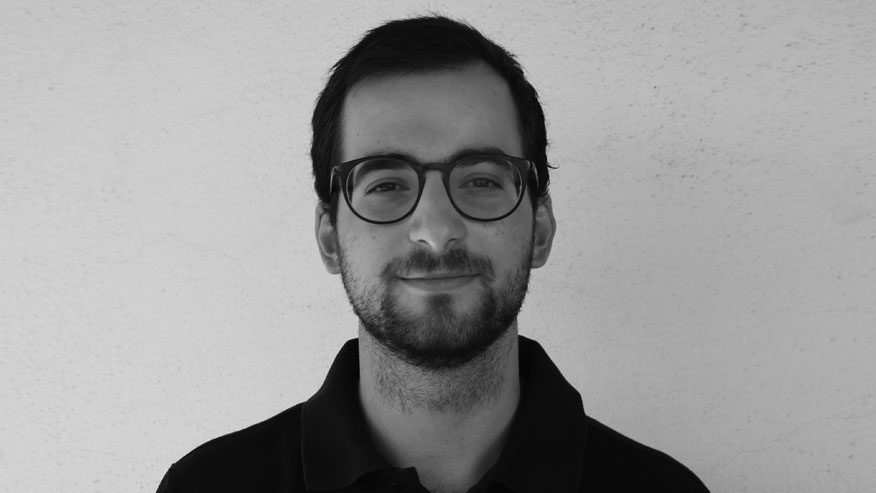
Francesco Tecca
Universidad de Sevilla
- ESR 3Carmina Latina Epigraphica from Caesarea Mauretaniae. Edition, Translation, and Commentary
- Background:BA and MA in Classics (Rome)
I’m Francesco Tecca and I was born in Rome. I studied Classics for five years at Sapienza Università di Roma (2015-2020), where I have deepened several research methods towards the Ancient World, especially the epigraphical one: during my academic training, collaboration with EDR (Epigraphic Database Roma) was possible. For my bachelor’s degree I wrote a philological dissertation in Greek Literature “La notte nelle Argonautiche di Apollonio Rodio”. Then I became very interested in Latin epigraphy and my master’s dissertation focused on the social mobility of the apparitores, a topic that allowed me to explore the elastic structure of Roman society and its possibilities of career. After my master’s degree I had the great honour of obtaining the ESR 3 position of the CARMEN ITN project. So, for at least the next three years (2021-2024), I will study the Carmina Latina Epigraphica from Mauretania Caesariensis as a researcher of the University of Seville.
Publications:
- F. Tecca, “The origins of the Diocesis Caesariensis in Mauretania from the perspective of its epigraphy and CLE”, CARMEN Working Paper. (forthcoming)
- F. Tecca, “History of Archaeological and Epigraphic Studies of Cherchell (Algeria): First voyagers, Institutions, Publications, and Archives”, CARMEN Working Paper. (forthcoming)
- F. Tecca, Contributions to the book edited by M.-C. Trannoy and Ph. Leveau, Corpus des inscriptions antiques de Caesarea Mauretaniae (ICaesMaur). Vol. 1 Caesarea Mauretaniae : les inscriptions de l’époque royale. Edition of 5 CLE from Caesarea. (forthcoming)
- F. Tecca, “I Carmina Latina Epigraphica africani d’età Giulio-claudia” in P. Ruggeri, S. Aounallah and F. Hurlet (eds.), Africa Romana, 22. (forthcoming)
- M. Butini, F. Tecca and C. Fernández Martínez, “Relectura y nueva propuesta de interpretación y clasificación de ILM 6 (= IAM 2 45 = Cugusi 2014, 215), in ZPE. (forthcoming)
- F. Tecca, “I sistemi di reclutamento degli apparitores e l’iscrizione inedita del lictor L. Valerius Communis” in Epigraphica, 85 (2023), p. 501-522. (forthcoming)
- Marchegiani, Nastasi, Tecca, Tozzi 2022 = “Epigrafi antiche nel Castello di Santa Severa (Lazio)” in Journal of Epigraphic Studies, 5 (2022), p. 135-155, with C. Marchegiani, A. Nastasi and G. Tozzi.
- F. Tecca “Italia Epigraphica Digitale. Volume IV. Romae – Inscriptiones Latinae et Graecae. Fascicolo I. 2 – Iscrizioni edite in pubblicazioni diverse da CIL VI, comprese in AE, parte II”. Author of the schedae nos. 3505, 3509.
- F. Tecca “Italia Epigraphica Digitale. Volume III. Romae – Inscriptiones Latinae. Fascicolo IV. 3 – CIL, VI 30000-39999, parte III”. Author of the schedae nos. 5986, 5987.
- F. Tecca “Italia Epigraphica Digitale. Volume III. Romae – Inscriptiones Latinae. Fascicolo I. 1-3 – CIL, VI 1-9999. Author of the schedae nos. 7828, 7831-7833, 8017, 8043-8044, 8053-8055.
- F. Tecca, Contribution to the article by S. Orlandi “Dalla scheda cartacea al record online. Un esperimento didattico su un gruppo di iscrizioni sepolcrali di Roma” in Bollettino di Archeologia Online, IX, 2018/2-3, 96-97.
Presentations
- “The origins of the Diocesis Caesariensis in Mauretania from the perspective of its epigraphy” for the seminar of the European project ITN CARMEN “Social Media in the Ancient World”, 3 of April 2023, Dijon.
- “Kit de supervivencia para filólogos clásicos”, 14 of February – 2 of March 2023, Universidad de Sevilla.
- “I Carmina Latina Epigraphica africani dell’età Giulio-claudia” for the international congress “L’Africa Romana XXII”, 15-19 of December 2022, Sbeitla.
- “CIL VII, 21084: another metrical inscription on a tabula lusoria?” for the international congress “La poesía epigráfica: retos y nuevas perspectivas en su estudio”, 23-25 of November 2022, Universidad Autónoma de Madrid.
- “Tabulae lusoriae latinae entre juegos y versos” for the “III seminario hispalense de filología latina”, 16-17 of November 2022, Universidad de Sevilla.
- “Methodology for a new edition of the lost CLE of Caesarea Mauritaniae” for CARMEN conference “What’s in a Manuscript?”, 21-23 of September 2022, Università La Sapienza, Rome.
- Brief presentation of the European project ITN CARMEN with M. Butini, T. Eichhorn, G. Naccarato and C. Rochlitzer in the panel Carmina Latina Epigraphica of the “International Congress of Greek and Latin Epigraphy”, 29 of August – 2 of September 2022, Bordeaux.
- “I sistemi di reclutamento degli apparitores: due nuove iscrizioni da Roma” for the “II Workshop Internacional de Epigrafía. Monumenta epigraphica: publicidad, promoción y propiedad”, 21-22 of October 2021, Universidad Complutense de Madrid.
- “I viatores a Roma: uno studio sulla loro condizione giuridico-sociale e culturale” for the seminar “Elementi di Epigrafia Greca e Romana” of “Incontri di archeologia, studenti Sapienza”, 16 of March 2019, Museo del Mare e della Navigazione Antica, Santa Severa.
- “᾿Ιαστί: osservazioni sulla lingua del giambo ellenistico” with R. Di Tuccio and M. Fattori for “Μαθήσεως Χάριν, seminario di studi per Massimo Di Marco”, 24 of October 2018, Università La Sapienza, Rome.

